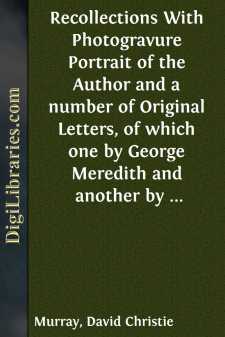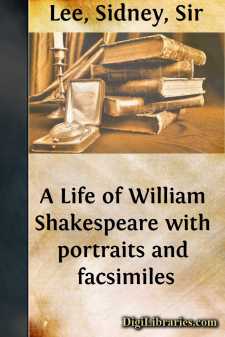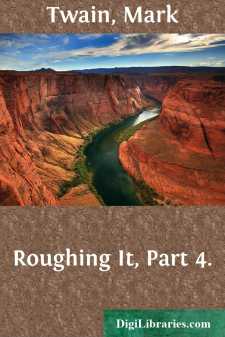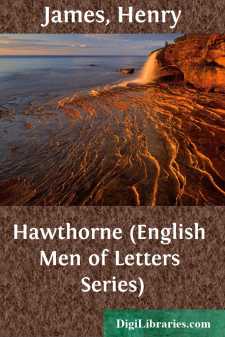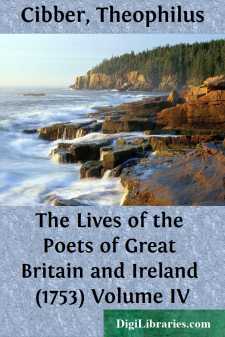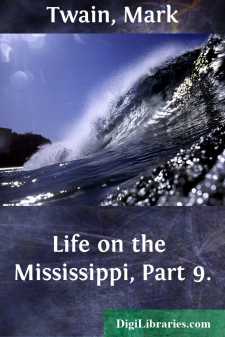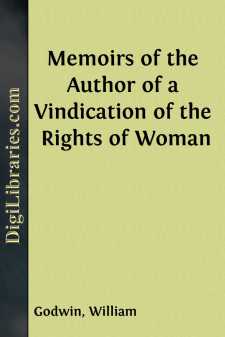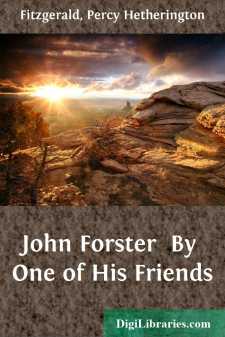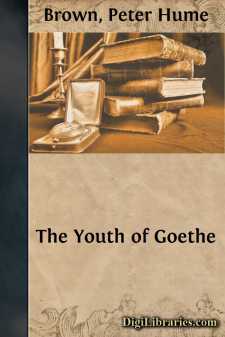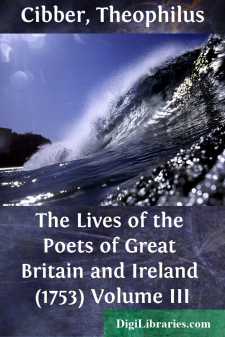Biography & Autobiography
- Adventurers & Explorers 15
- Artists, Architects, Photographers 16
- Business 2
- Composers & Musicians 14
- Criminals & Outlaws 5
- Editors, Journalists, Publishers 6
- Educators 1
- Entertainment & Performing Arts 3
- General 73
- Health, Exercise & Fitness 1
- Historians 3
- Historical 83
- Law Enforcement 1
- Lawyers & Judges 3
- Literary
- Medical 7
- Military 48
- Naturalists, Gardeners, Environmentalists 8
- Personal Memoirs & Diaries 226
- Philosophers 3
- Political 9
- Presidents & Heads of State 38
- Religious 38
- Rich & Famous 27
- Scientists 13
- Women 31
Literary Books
Sort by:
CHAPTER I The Unlucky Day of the Fool's Month—High Street, WestBromwich—My First Pedestrian Triumph—The Common EnglishBracken—The Sense of Beauty. I remember that in a fit of petulance at some childish misdemeanour, my mother once told me that I came into the world on the unlucky day of the fool's month. It was her picturesque way of saying that I was born on the thirteenth of April....
more...
by:
Sidney Lee
PREFACE This work is based on the article on Shakespeare which I contributed last year to the fifty-first volume of the ‘Dictionary of National Biography.’ But the changes and additions which the article has undergone during my revision of it for separate publication are so numerous as to give the book a title to be regarded as an independent venture. In its general aims, however, the present...
more...
by:
Mark Twain
CHAPTER XXXI. There were two men in the company who caused me particular discomfort. One was a little Swede, about twenty-five years old, who knew only one song, and he was forever singing it. By day we were all crowded into one small, stifling bar-room, and so there was no escaping this person's music. Through all the profanity, whisky-guzzling, "old sledge" and quarreling, his monotonous...
more...
by:
Henry James
CHAPTER I. EARLY YEARS. It will be necessary, for several reasons, to give this short sketch the form rather of a critical essay than of a biography. The data for a life of Nathaniel Hawthorne are the reverse of copious, and even if they were abundant they would serve but in a limited measure the purpose of the biographer. Hawthorne's career was probably as tranquil and uneventful a one as ever...
more...
PETER MOTTEAUX, A French gentleman, born and educated at Rohan, in Normandy. He came over into England, was a considerable trader, and resided here many years. He is said to have possessed no inconsiderable share of wit, and humour; and, besides a translation of Don Quixote, several Songs, Prologues and Epilogues, together with a Poem on Tea, dedicated to the Spectator, (see Vol. VII. Numb. 552) he is...
more...
by:
Mark Twain
Chapter 41 The Metropolis of the South THE approaches to New Orleans were familiar; general aspects were unchanged. When one goes flying through London along a railway propped in the air on tall arches, he may inspect miles of upper bedrooms through the open windows, but the lower half of the houses is under his level and out of sight. Similarly, in high-river stage, in the New Orleans region, the...
more...
by:
William Godwin
CHAP. I. 1759-1775. It has always appeared to me, that to give to the public some account of the life of a person of eminent merit deceased, is a duty incumbent on survivors. It seldom happens that such a person passes through life, without being the subject of thoughtless calumny, or malignant misrepresentation. It cannot happen that the public at large should be on a footing with their intimate...
more...
JOHN FORSTER. A MAN OF LETTERS OF THE OLD SCHOOL. One of the most robust, striking, and many-sided characters of his time was John Forster, a rough, uncompromising personage, who, from small and obscure beginnings, shouldered his way to the front until he came to be looked on by all as guide, friend and arbiter. From a struggling newspaperman he emerged into handsome chambers in Lincoln's Inn...
more...
by:
Peter Hume Brown
PREFACE "Generally speaking," Goethe has himself said, "the most important period in the life of an individual is that of his development—the period which, in my case, breaks off with the detailed narrative of Dichtung und Wahrheit." In reality, as we know, there is no complete breach at any point in the lives of either nations or individuals. But if in the life of Goethe we are to...
more...
THE LIVES OF THE POETS. * * * * * Sir JOHN DENHAM. An eminent poet of the 17th century, was the only son of Sir JohnDenham, knight, of Little Horsley in Essex, and sometime baron of theExchequer in Ireland, and one of the lords justices of that kingdom.He was born in Dublin, in the year 1615[1]; but was brought over fromthence very young, on his father's being made one of the barons of...
more...


